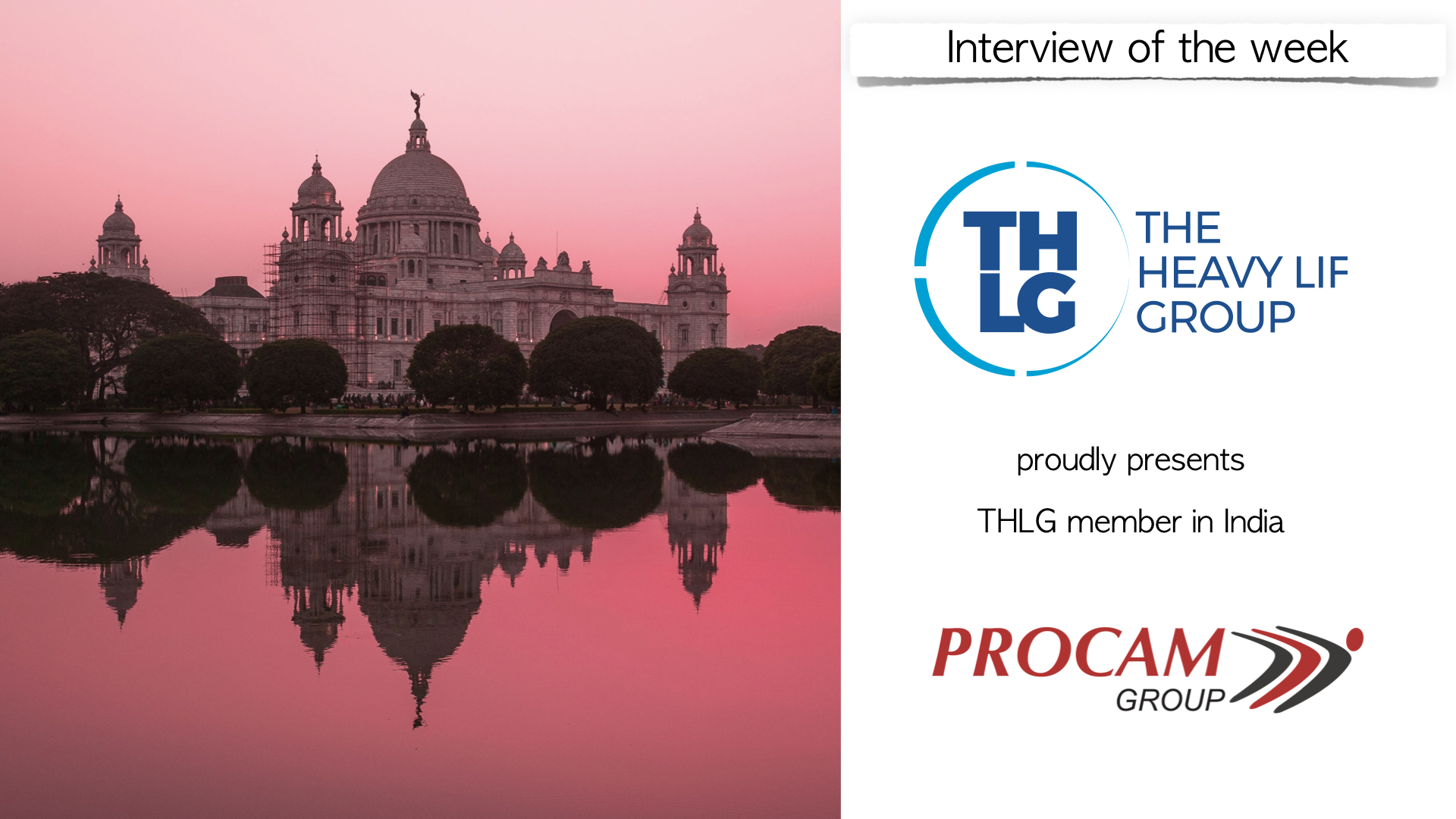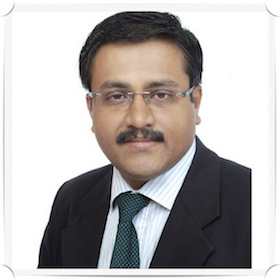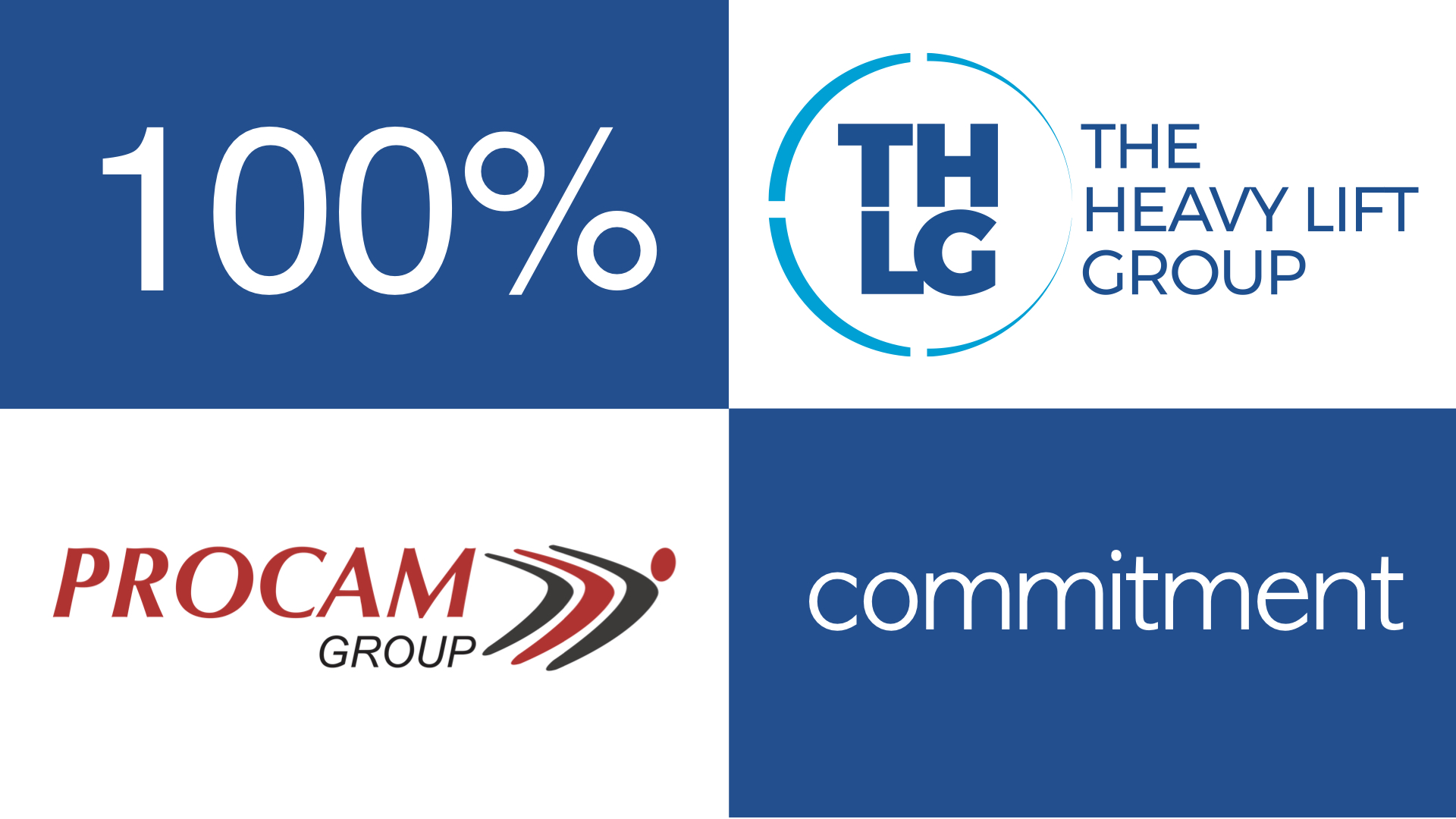

this week we speak with Nilesh Kumar Sinha,
Founder Director, Procam Logistics, India
![]()
THE "WHO-WHERE-WHAT" CHALLENGE

|
Nilesh did his Master’s in Business Management, PQE, from ICS London (MICS), a Bachelor’s in Science (Statistics, Physics & Mathematics), and became a certified Oracle and D2K professional, as well as a certified ISO 9000 auditor. He started his career with a leading project transport company in 1998 and since then, he has worked with many senior and experienced project professionals and ODC experts, though as he says, he is still learning from many senior people at Procam. He has also previously worked at a Korean leading metro car manufacturer and handled logistics of the first metro rail imported into India for the Delhi Metro Rail Corporation. |
|
Tell us about Procam Logistics, India? |
|
Procam Group is a professionally managed company and started in the year 2010 with a clear vision and a mission to be an innovative and process-oriented organization. It is backed by a management team of industry professionals with a wide area of expertise. We focused on building a sustainable organization by investing in equipment, technology and people. In Procam Group , while Procam Logistics has an asset-based business model, our other group company, Procam Worldwide is a network-based business model. We also have a joint venture with the UK based Lord Swaraj Paul owned Caparo Engineering, Caparo Procam Infrastructure Limited which takes care of the warehousing business for an automotive and other industrial project cargo warehousing company in India. |
|
Tell us a few words about your experience, your expertise and your business in general. |
|
We’ve focused on being the difference-maker in all the facets of logistics services in a client’s supply chain. We decided to position ourselves as a solution provider in the strictest and most literal sense, in a market driven by unorganized players which are highly cost centric. We took an inside-out approach and developed a culture towards solutions to meet the overall project requirements of our client. The second critical point we focused on was to be safety-oriented. We made adequate investments in this direction and that approach paid off. Today, Procam is known as one of the few companies with the highest level of HSE orientation. Our service commenced with project cargo management but has expanded through verticals like warehousing, IT services, tax consultancy, custom house agency, project solutions management, chartering etc., for various industry verticals. A combination of all these efforts, underpinned by continual recognition from various industry bodies and various awards, in virtually every domain, have helped us stand out in the shortest possible time. Our clientele includes enterprises setting up new projects, including the relocation of plants, and companies looking at improving their supply chain efficiencies and visibility across domestic and international operations. We also own 120 modular hydraulic axles, 25 heavy prime movers/pullers, 6 x 54m modular Goldhofer hydraulic trailers for blade transportation, 2 x 400t lift system gantries and many specialized tools for electrical and mechanical installation. |
|
Where are your offices located? |
|
We have our offices in 15 cities in India having direct access to major sea ports, ICD’s and airports. We also have our own customs brokerage licenses to facilitate the cross border customs compliance by inhouse team. |
|
Tell us about projects that you have handled recently. |
|
|
We recently completed Door to Door movement of Metro rail car from Caserta, Italy, to Pune, India, for Pune Metro Project, which was inaugurated by the Prime Minister of India on 06/03/2022. The scope included the road permit in Italy for heavy haulage, engagement of RORO ship for the sea transport reach Genoa port, chartering of vessel from Genoa to Mumbai Port, port handling at both origin and destination port by use of special lifting beam, customs compliance under Project Import control, onward movement of rail car on our modular hydraulic axles and unloading at Pune metro depot. We moved a mock-up car, flatpack, along with component movement to assemble the rail car for Pune Metro project. Apart from above we regularly move transformers (55 T to 250T), wind blades (54 meters to 72 meters), nacelles, pressure vessels for various refinery projects and critical equipment for hydroelectric, solar projects equipment etc. Globally, we’ve handled several projects in Afghanistan, Vietnam, Indonesia, China, Germany and France. Our installation vertical undertook the dismantling of plants globally and assembled them in India. Our in-house engineering team undertake the mechanical and electrical installation. We also undertake piping work. We installed India’s first 12500t press machine and have installed more than 120 various types of heavy equipment across various industries like healthcare, automotive, railways, defense etc. |
|
|
Which are the main industries served in India and which one seems to be your focus point? |
|
|
We handle the project and oversized cargo, installation and rigging of heavy equipment in India. Our senior management team has been handling projects and ODC for the last 50 years in India, having handled project cargo and ODC in the early seventies and eighties, when India was trying to establish a manufacturing base. Post-1991 (post-liberalization), the infrastructural investment growth took place and our senior management team, at various levels, handled many large-scale projects globally in power, refinery, fertilizer, steel and cement projects. We provide logistics services across six core industry verticals (power, rail, oil & gas, steel & cement, automotive and heavy engineering) and we help optimize our clients’ supply chain requirements. |
|
|
Is Project Cargo Forwarding a competitive sector in India? How do you ensure that you stand out? |
|
Project cargo in India has two broad segments: one for domestic transportation of equipment and other is global movement of project cargo. The first segment, Domestics Projects cargo, is being served by the asset owning heavy lift players whereas Global Project segment is primarily served by the light domestics and global freight forwarders thru their global presence by their own office or thru partner, e.g., being a member in a global network like THLG and using an asset owning company in the respective local market. For Domestics Projects cargo, the Government of India created an online portal where each movement is recorded and permission to transport such heavy cargo is issued by the Ministry of Road Transport. The loads are categorized in 13 major categories and based on the size and weight of equipment the necessary permission and movement guidelines are issued. In the last 7 years approx. 65000+ heavy lifts have been moved in India. This is moved by approx. 200+ players (asset owning) in India. So, this market is very competitive, and supply is more than demand during the last 3 years. Post corona, based on government commitment to fast-track infrastructural projects, it is expected that the day rate of axles will increase. The Global Projects transport sector has been badly affected by Covid-19 and many project cargo service providers are directly depended on the shipping companies, which are largely not able to meet their commitments. Thus, the forwarders are being penalized by the charterers due the bottleneck which is out of the control of the service provider. Despite that, many companies sustain due to their capacity to respond to the market challenges. The recent outbreak of war between Russia and Ukraine is further creating uncertainty of long-term contracts and volatility of fuel will have an adverse impact. We however hope that with the new situation after the war, the supply chain route and choices to user service provider will be redefined and companies who are doing business with India will have better business opportunities as, India is still one of the world’s biggest consumer markets. |
|
What parts of Heavy lift project management seem to be challenging in India? Any advice to be shared as a precaution or as an important highlight to a potential customer? |
|
|
In the last 10 years the road infrastructure in India has improved. The classification of heavy load in 13 major categories and online movement permissions of odd dimension and heavy equipment on national highway helped to a good turnaround of equipment and helped to optimize the cost. But India being a federal country, the roads fall under state government jurisdiction and the same approval policy is not yet adopted by many states, which delay transports. So, while planning any heavy lift movement in India, a proper route survey and road judication and permission policy of each state is to be considered. In case of bypass construction or temporary jetty construction, the acquisition of land is very critical and local level understanding of compliance and relation with local people is very important before taking such project. It is very important to follow the compliance of movement for heavy, expansive, and critical equipment of projects in India. As per Motor Vehicle Act in India, 55 MT gross weight vehicles (weight of cargo + weight of trailer) are allowed to be transported via a mechanical trailer, which means that any cargo having a maximum weight of up to 40T can be transported on a mechanical trailer. In case of cargo weighing more than 40T then as per Heavy Lift Load Classification (HT1 to HT13), the type of hydraulic axles to be used is defined for meeting all transport requirement. This is very important from the insurance point of view, as in case the selection of type of vehicle is compromised to save cost, then in the event of any accident , the insurance claim can be denied by the insurance company. |
|
Tell us about yourself. What made you personally join the industry? |
|
I did my Master’s in Business Management, PQE, from ICS London (MICS), a Bachelor’s in Science (Statistics, Physics & Mathematics), and became a certified Oracle and D2K professional, as well as a certified ISO 9000 auditor. I started my career with a leading project transport company in 1998 and since then, I’ve worked with many senior and experienced project professionals and ODC experts, though I’m still learning from many senior people at Procam. I have also previously worked at a Korean leading metro car manufacturer and handled logistics of the first metro rail imported into India for the Delhi Metro Rail Corporation. I handled the profit centre profile for ten years, before starting my entrepreneurship journey in 2010. In the last twenty years, I’ve handled many large and complex projects in fertilizer, refinery, railways, power (nuclear, thermal, and hydro), and many plant relocation and complex installation projects. During my management studies, I did my summer internship with Tata Steel and got exposed to logistics and later, after completion of my studies, I entered the project cargo business in 1998. But a passion for learning and sharing still takes me back to college and I do guest lectures at leading management and engineering colleges on international marketing, supply chain and project cargo management. As part of our corporate social responsibility at the Procam Foundation (http://procamfoundation.org/), I also drive an awareness campaign for stem cell donation for blood disorders and cancer patients. We also work for child education, female empowerment in the rural sector, and organ donation. |
|
What do you personally like the most about your business? |
|
|
Every new job is different and brings new type of challenges, therefore this business always keeps you alert. The quest to learn new things keeps your curiosity alive with every transport. The application of project management skills in the work makes you disciplined in your personal life as well. |
|
Who should be approached in Procam for inquiries? |
|
Email: nilesh.sinha@procamlogistics.com Mobile / WhatsApp: +91 98 181 01162 Procam Group |

